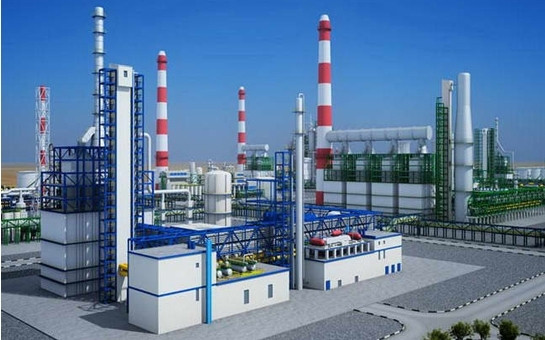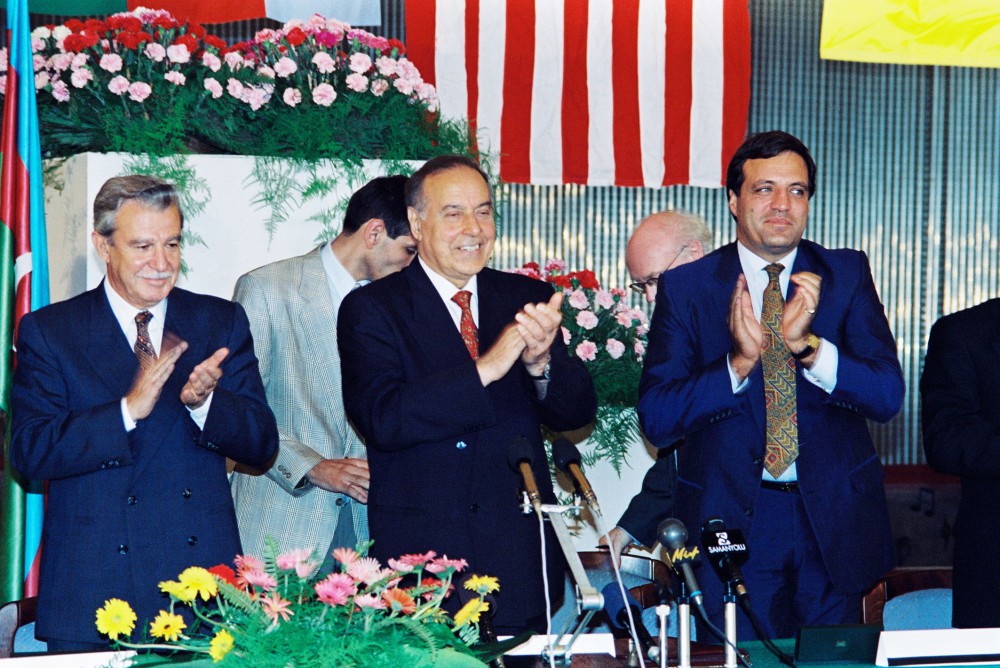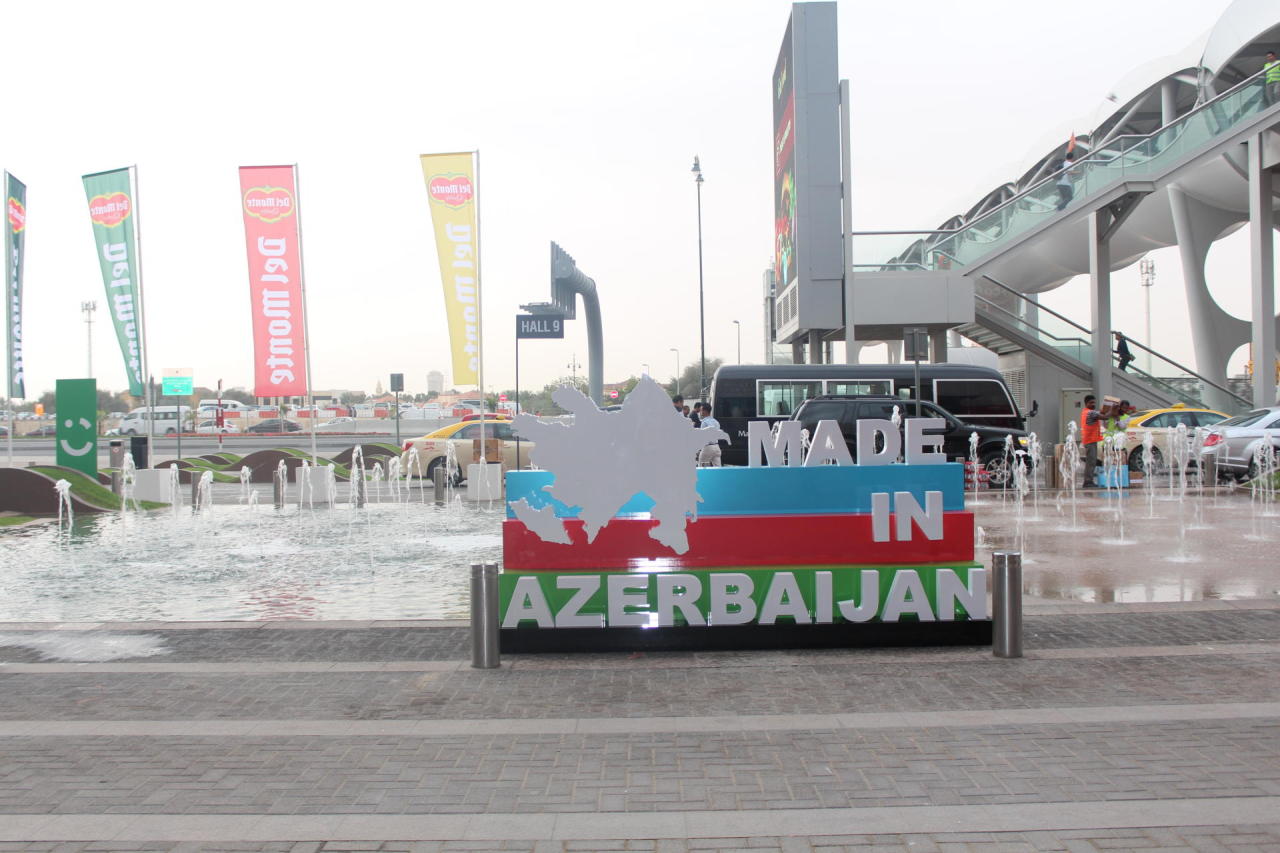GENERAL INFORMATION ON AZERBAIJANI ECONOMY

After the restoration of independence in 1991, the Republic of Azerbaijan began to realize its sovereign rights in the economic field and to implement independent policy. The main directions of this policy are the organization of the economic system based on different types of property, transition to the market economy, and integration into the global economy.
Economically, the years after the independence can be divided into two main periods. The period of 1991-1995 was characterized by economic chaos and regression. The period after 1996 is known for an increase in macroeconomic stability and dynamic economic development.
As the result of far-sighted policy and intensive activities of the President of Azerbaijan, the national leader Heydar Aliyev, significant results were achieved in the fields of socio-economic development and integration into the global economic system within a short period of time – in spite of unfavorable initial conditions. The great achievement was that the Azerbaijani model of the state system establishment and development was established over the past period.
At the beginning of economic recovery, the country lacked oil-exporting infrastructure. In order to fill this gap, in 1996 Azerbaijan signed an agreement allowing its oil exports via the Baku-Novorossiysk pipeline. In 1999 the new pipeline Baku-Supsa was put into use; additionally, an agreement on construction of Baku-Tbilisi-Ceyhan, which is currently the major oil-exporting pipeline.

One of the main tasks of the country’s leadership in that period was efficient use and reallocation of the benefits from rich oil and gas endowment. In order to solve this task, in 1999 the national leader Heydar Aliyev adopted the Decree promoting cooperation with international companies in this field. Additionally, in order to channel the revenues from oil exports to the priority sectors of the economy and important social and economic projects, the State Oil Fund was established. At the current moment, international organizations evaluate positively Oil Fund’s activity and its provision of transparency.
The oil-gas sector played a dominant role in developing other sectors of the economy. The considered economic policy led to macroeconomic stability and sustainable economic growth, as the result, reforms started in all economic fields, new measures are taken in order to improve the social welfare of the population.
Developing entrepreneurship, attracting domestic and foreign investment by establishing a favorable business and investment environment, obtaining non-oil sectors’ development had been specific features of implementing economic policy at this stage. As the result of fulfilling expedient measures, the entrepreneurship section was formed and the role of the private sector in social-economic development increased considerably.
Implemented measures in providing diverse forms of property contributed positive effects to sustainable economic growth. However, despite the beginning of privatization specific weight of the private sector in the GDP was less than 10%, currently, the special weight reached 83%.
After maintaining independence as the major priorities of foreign economic policy, the Republic of Azerbaijan formed a relationship with international finance credit and economic institutions. Azerbaijan had been admitted nearly to of all international institutions, including in 1992 IMF, World Bank, EBRD, Islam Development Bank, in 1999 Asian Development Bank.
The main directions and specifications of social-economic policy strategy, which is continued success and improved by the President of the Republic of Azerbaijan, Ilham Aliyev, is to transit to the market economy and to form a social, diversified national economy, which possesses the ability of self-development and to integrate to the world economy.
As the result of the implementation of this policy, obtained successes are strengthened, macroeconomic stability was secured, diversification of the economy, development of non-oil sectors and regions accelerated, efficient usage of strategic international reserves was secured, the stability of national currency and confidence of banking system increased, conservative external debt strategy implemented, support from government to entrepreneurship intensified, social welfare of population improved sustainably.
On the basis of the President of the Republic of Azerbaijan`s decree on 16 March 2016, (No:1897, "About approval of "The main directions of the strategic road map on the national economy and the main sectors of the economy" ) 12 strategic roadmaps for 11 sectors of the national economy developed. Strategic road maps include the strategy of economic development and the actions plan for 2016-2020, long-term view of the period till 2025, and target view of the period after 2025. The document does not only cover the principles and development goals but also, global trends in each direction, 360 degrees diagnostics of the economy and GZIT analysis, measures to be taken, required investment, and outcome indicators. The Strategic Roadmap provides all factors contributing to economic growth, including opportunities for communication and cooperation by local and international private sector representatives. According to the road map, the locomotive of economic development is the private sector, while government investments play a catalyst role. It is especially must be noted that after the approval of the Strategic road map, relevant government agencies have set up their activities on the basis of more detailed programs. Before the implementation of the project, a feasibility assessment is conducted and relevant government agencies are responsible for each initiative.
3-year programs were accomplished in 2004-2018 on the socio-economic development of regions of Azerbaijan by presidential decrees and orders in order to implement comprehensive and sustainable measures aimed at economic diversification.

The execution of tasks of the state program accepted and successfully implemented for the developments of the regions, as well as at the decrees in connection with additional measures for socio-economic development of the regions, gave a stimulus to the stable development of the non-oil sector in the country, increasing of quality of public utilities and social infrastructure in the regions, improvement of the business environment, increasing of investments, the opening of new enterprises and workplaces and as result, employment of the population and decreasing of the poverty level. During the period of implementation of the state programs in 2004-2018 years, GDP increased 3.3 times, while the non-oil sector increased 2.8 times. Also, industry and agriculture increased respectively 2.6 and 1.7 times in Azerbaijan. Meanwhile, more than 2 million new workplaces have been created in the country. 1.5 workplaces were permanent. More than 100,000 institutions were created. Unemployment and poverty rates have fallen to 5 percent and 5.1 percent respectively. On the basis of state programs, large-scale works have done and paved a way for the development of regions in the coming years.
In order to continue the works in the field of socio-economic development of the country`s regions, including rural areas, as well, as to improve infrastructure and social services, increase employment and material well-being, `The State Program on socio-economic development of regions of Azerbaijan Republic in 2019-2023`, is being successfully continued.
Today, Azerbaijan has improved its own quality new economic model, expanding political and trade relations between Europe and Asia, and playing an important role in the implementation of huge projects along with the development of the Caucasus transportation corridor. As a result of the implementation of international projects, Azerbaijan has become an international transportation hub and transportation corridor in the last few years. A large shipyard has been built in our country. The use of the Alat International Sea Trade Port which is the largest in the Caspian Sea, and Baku-Tbilisi-Kars railways is a historic event.

The President of the Republic of Azerbaijan Mr. Ilham Aliyev signed the Decree on the large-scale promotion of local non-oil products in foreign markets as “Made in Azerbaijan” on 5 October 2016. This Decree contains 9 different support mechanisms to stimulate exports and promote “Made in Azerbaijan” abroad. Currently, more than 3,000 varieties of products are exported under the `Made in Azerbaijan` brand.
In order to encourage the export of our country's competitive products, the number of trading houses is growing abroad. Currently, in order to strengthen their activities, organization work continues.
In recent years, one of the most significant achievements of the Azerbaijan energy sector has been the delivery of the TANAP project to the European border. The TANAP and TAP projects, a key part of 3,500 kilometer-long Southern Gas Corridor connecting several countries, have been successfully completed.
Another important event in the field of energy was the signing of the memorandum of understanding on joint exploration, development, and development of hydrocarbon resources of the Dostluq field in the Caspian Sea between the government of Turkmenistan and the Government of the Republic of Azerbaijan. In terms of the development of our country's oil and gas strategy, the memorandum of understanding has great importance. This historic event will have a positive impact on the growth of the role of our country as a transit country and contribute to the realization of the Trans-Caspian energy pipeline.
The occupation of about 20 percent of the territory of Azerbaijan for many years has led to economic growth, which has not allowed it to use its potential. The enemy in the Patriotic War 2020 for 44 days restoration of liberated territories after a brilliant victory over them, ensuring further development, the creation of large-scale infrastructure, and the return of the population to their native lands actions are carried out.
Due to the rich economic potential, natural resources, and wide tourist opportunities of all works aimed at ensuring their equal development, through effective implementation on the basis of a single program, the compliance of the territories of the areas liberated from occupation with the revision of the distribution by economic areas is the goal. To this end, President Ilham Aliyev dated July 07, 2021 “on the new division of economic regions in the Republic of Azerbaijan” According to the decree, the Karabakh and East Zangezur economic regions have been created in the territories liberated from occupation.



